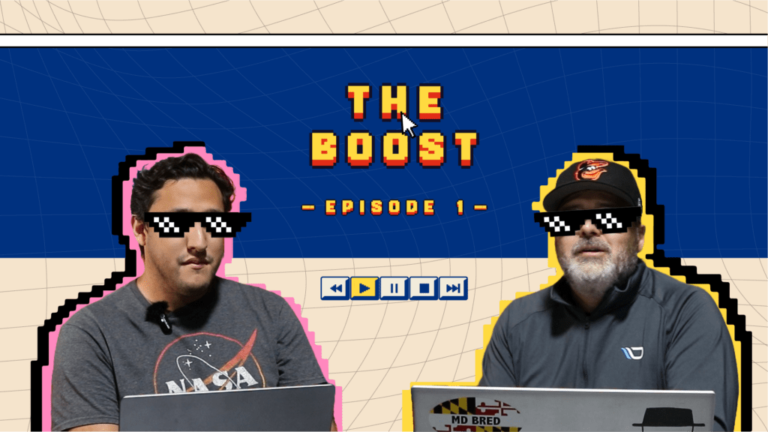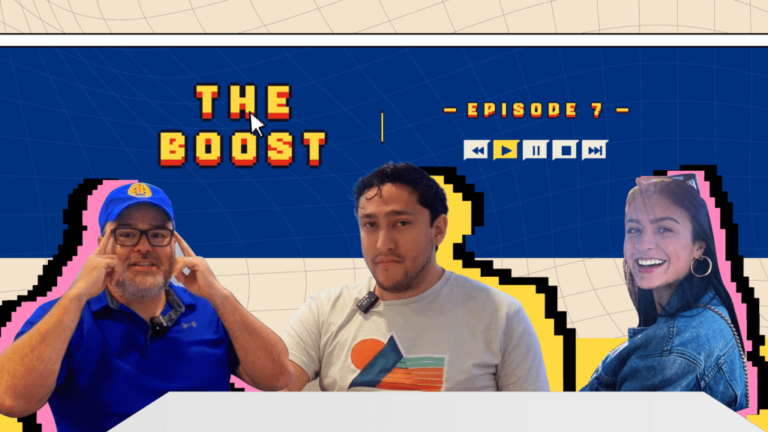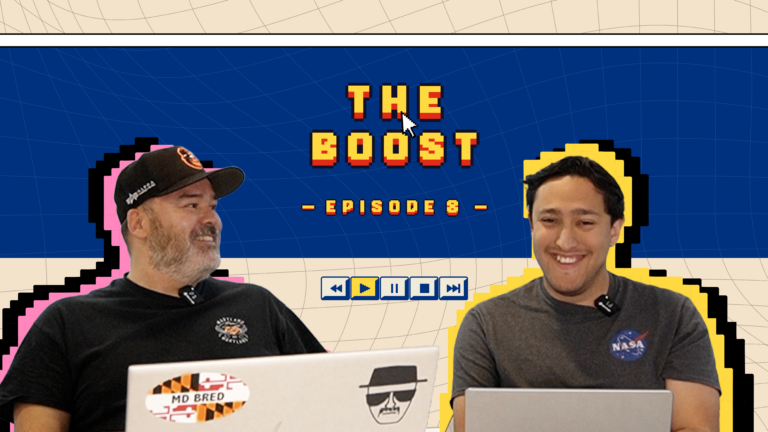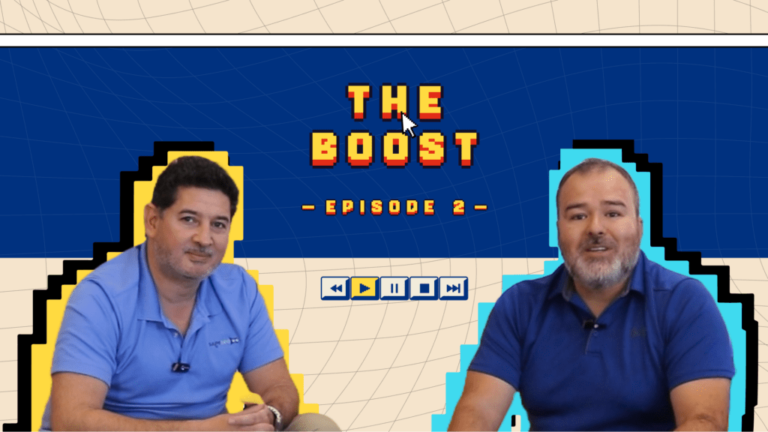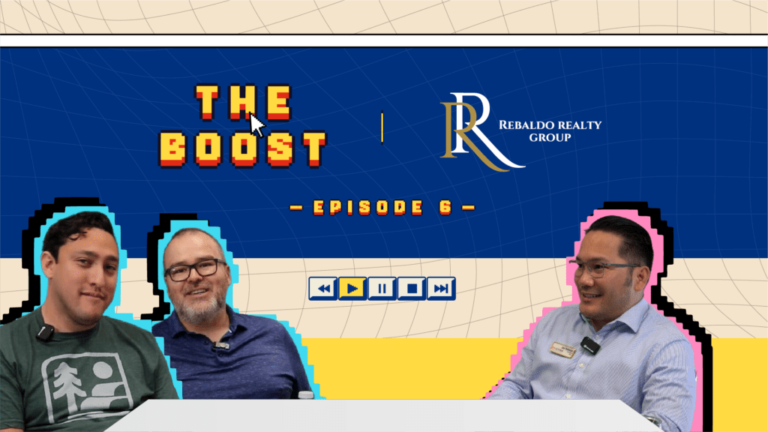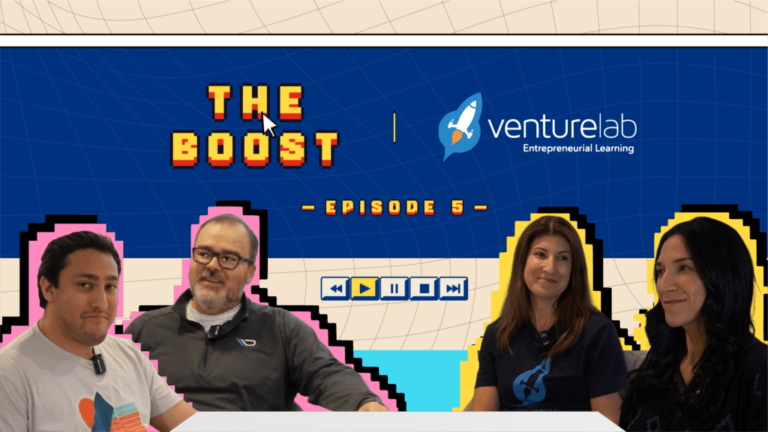This episode of The Boost offers insights into the evolving landscape of marketing, technology, and content consumption in 2024.
Hosts:
Pablo Calvo: Linkedin
Leon Hitchens: Linkedin
Podcast:
1. Introduction and Focus of the Podcast
– Hosts: Pablo and Leon, with producer Kory.
– Recording from Seguin, South Texas.
– Focus: Tech, business in South Texas, local business and startup interviews, and agency-related topics.
2. Discussion on Gutenberg and WordPress
– Gutenberg’s impact on WordPress and its relationship with other page builders.
– Debate over the role of independent page builders in WordPress’s evolution.
– Different perspectives on the future of page builders and Gutenberg’s integration.
3. Agency Perspectives and Page Builder Usage
– Pablo’s agency experience and reliance on page builders for non-developers.
– Transition from various page builders to others based on project needs.
– The dilemma of Gutenberg’s integration versus independent page builders.
4. The Role of Page Builders in WordPress Ecosystem
– The importance of page builders in WordPress’s popularity and functionality.
– Concerns about WordPress’s direction and the community’s response.
– Discussion on the future of page builders in the evolving WordPress environment.
5. User Experience and Agency Challenges
– The complexity of teaching clients multiple user interfaces.
– The ease of training and website management with Gutenberg.
– The challenge of balancing client needs and technology solutions.
6. Web Development Trends and Platform Choices
– The distinction between web development and user-friendly platforms.
– The impact of platforms like Wix, Squarespace, and Webflow on web development.
– The ongoing relevance of full-stack developers in an evolving web landscape.
7. WordPress Community Dynamics and Future
– Discussion on the tribalism within the WordPress community.
– The distinction between wordpress.org and wordpress.com.
– Speculation on Elementor’s future and its possible divergence from WordPress.
8. Sales, Marketing, and Small Business Challenges
– The reality of sales and marketing for startups and small businesses.
– The misconception of ‘build it and they will come’ in business development.
– The importance of comprehensive digital strategies beyond just web development.
9. The Boost’s Mission and Community Building
– The goal of ‘The Boost’ is to promote South Texas businesses.
– Encouragement for businesses to share their stories and join the community.
– Future plans for the podcast and engagement with the audience.
Visit us at Digiboost.com or email us at [email protected].
Pablo Calvo (00:06):
Hey guys, thank you for joining the Boost. I’m Pablo,
Leon Hitchens (00:08):
I’m Leon,
Pablo Calvo (00:10):
And I wanted to also give credit to our producer there, Kory. He’s in the background that you can see, but he’s making all this possible. So we’re recording from the rise here in Seguin. Our focus here for the channel is to focus on all tech and business in South Texas. Our goal is to interview local businesses and startups in the region, but also talk about all things technology, WordPress production and agency related topics.
Leon Hitchens (00:37):
Yeah, I don’t have anything to add to that.
Pablo Calvo (00:40):
If you’re interested in promoting your business, please send an email out to [email protected] and we’ll get you on the schedule. So today I’d like to chat about Gutenberg and the state of the impact on WordPress produce materials and technologies like Page builders. Right now, there’s a lot of drama with regard to those page builders because they’re really working as independent businesses on top of a open source platform. Leon and I have a bit of a different opinion. I feel like WordPress is huge. It does whatever it feels like doing, and people can complain all they want, but those page builders have gotten very, very large on a free open source platform, and now that WordPress is starting to implement more of a page builder of its own with Gutenberg, it’s starting to kind of edge those page builders out that have been in place for quite some time. So what do you think about that, Leon?
Leon Hitchens (01:37):
Yeah, I think in the end, we had all of these page builders build the community of WordPress like Beaver Builder, the reasons that Gutenberg even kind of came about. So as they get edged out, like Matt Mullen way and the discussion around it has been a bit hostile to them considering the presence they play. They made WordPress open and friendly. Without them, we wouldn’t have had the community and ecosystem that there is. That’s right. It’s a little bit of chicken and egg. Without WordPress, you don’t have what we have today, but also without Elementor, Beaver Builder, Bakery, Visual Composer, you don’t have that prevalence. The 50% of internet running WordPress is because of those page builders in the end. That’s right. I enjoy Gutenberg and I enjoy using it, but I do see a place and a time for Elementor, even the Cadence blocks, but I think they’re for different scenarios and different settings. Gutenberg block themes as a whole, I don’t think they’re ready a hundred percent, but also Elementor behind the Eight Ball, it’s case in point to their price range.
Pablo Calvo (02:57):
Well, one of the things that I can at least bring some perspective to is at least from being an agency owner now for the better part of the past 13 years with my own startup way back in the day and then to Digi Boost today, what I’m seeing is that, I don’t know, you have to look at these page builders from the standpoint of the opportunities that they offer non-development resources to be able to go, I mean, I’m not a developer by any stretch. I can build websites, I know some code, but if it wasn’t for those page builders making WordPress more of a platform to be able to grow a business, who knows where my career would’ve gone. So from one standpoint, I feel allegiance to a number of page builders. The ones that I use or have used in the past. I mean, Leon mean obviously we worked with Beaver Builder for a long time until it just became a little bit more difficult to do the types of projects that we really wanted to do.
Pablo Calvo (04:00):
Then we shifted to other technology platforms. I know you and Kory love Elementor, and I’ve built a number of websites and Elementor, but I’ve tried them all. I’ve done Oxygen Builder, I’ve done Bricks Builder. These days. I’m really hot on Kadence blocks, stellar wps, in my opinion, amazing product because it’s so tightly integrated to Gutenberg, but not everyone agrees. People like the tools that they’re going to use. So I can’t really get upset with WordPress from the standpoint of the way Automatic is taking the platform to just do what they want to do, which is making the website or not the website, the web platform accessible to as many non-technology people out there, business owners, bloggers, and the like. But there’s millions, multiple millions of dollars at stake with these platforms and the way that they’re developing. I mean, there’s definitely a tug of war going on there.
Leon Hitchens (05:02):
Yeah, you have bakery that’s still around,
Pablo Calvo (05:05):
Which is amazing.
Leon Hitchens (05:06):
It’s a terrible builder in the grand scheme of it, but you have this, the WordPress ecosystem going after Matt, and then also Automatic. It is a weird company set up. You’ve got a nonprofit organization, which is wordpress.org, and you have wordpress.com and the two really aren’t differentiated. They’re kind of one in the same, but it’s also coming down to the other parts of it, like wordpress.com is now getting some of the plugin repository. That was a backlash. wordpress.org has always been that repository spot. So it’s kind of like if Word WordPress doesn’t have the community and it is just automatic what happens to that community, and it almost feels like there’s a user hostile take to it where I do think that Elementor needs to integrate to Gutenberg more. They need to use the blocks more, and they’re kind of pushing that way with Flexbox and all that other stuff, but they’re not embracing it in the way that these other themes have, where even Ocean wp, it’s a big Elementor based theme essentially. It’s supporting blocks more and more, and then you’ve got these hybrids cadence that are coming out, but I don’t really see Elementor navigating away in the next maybe five to 10 years. Sometime in that way. I think they have 11 million active installs, maybe more. So it’s a weird take in the end because Gutenberg I do think is the future, and I really do like it.
Leon Hitchens (06:45):
For example, I just wrote the blog post before in that you’d have to go open an elementary thing. I hate typing an elementary. You have the little box on the side. You can do it in the center sometimes, and then you can just use Elementor for a custom theme, and then you can go use the block editor to add rows and columns. It all supported inside of that. So I think there’s a middle ground, but it is weird. Also on the agency side, the block editor is what people know and use now. So a customer can go log in and say, Hey, I want to edit this text, or I want to change this image around, and it’s very intuitive. Where Elementor and I’m focused on that I use it is not quite intuitive. In the end, it is a setting box on top of a setting. It’s a UI on top of a UI, and that’s quite an odd thing to have.
Pablo Calvo (07:39):
It’s difficult. I mean, just from a standpoint, you mentioned from an agency standpoint and from that perspective, the end of the day, every agency wants consistent customers. They want that regular recurring revenue that you’re getting from your clients that are paying you over and over and over again, over again. But sometimes what happens is the clients that want to get their hands dirty, when you have to teach them multiple UIs to make basic changes on a site, as a daily user of these tools, you take that knowledge for granted. It’s not until you’re trying to teach somebody how to do certain things that you realize, wow, there’s a lot of steps to this. Even if you’re trying to document it. One of the things that I’ve learned is that at least with Gutenberg from a training perspective, from being able to hand a website over to an end user being your client, or if you’re a small business and you don’t have necessarily a technology professional on your team, but somebody that does know how to use web interfaces, you can teach quite a bit from just keeping it simple. I don’t really have necessarily a lot of clients that want to get their hands dirty often, but when they do, it’s always like this, oh, why is this so complicated? And they’re thinking that you can just kind of roll out some sort of custom platform that’s going to facilitate everything for them. I mean, do you remember five years ago when we started building everything in custom post types and we thought, oh, well, the clients, they just want to make edit changes, not realizing that they’re going to want to make design changes too. Yeah,
Leon Hitchens (09:26):
They want to move the button to the left, to the right. Exactly. There’s a lot of that. And then also think that those proprietary ones like Wix and Weebly and Squarespace have also distorted what web development is. There’s two sides to this coin. There is web development and everybody says the web developer’s going away, but in reality they’re not. They’re always going to be there. It’s just going to be in different capacities, and those users just want that drag and drop. They’re used to their iPhone, they’re used to their iPad, and then they come to the web and they expect it to act the same way. And when it users get frustrated, and WordPress is a weird thing. I think the intuitiveness of all of it is the reason why it has been so popular, but also at the same time, you got to install 1,000,001 plugins to get sometimes the capability that you want.
Pablo Calvo (10:21):
Right. And what are the problems that those combinations bring to the table? I mean, when people talk about stacks, right? Like, oh, what’s your tech stack? What are you using? In reality in the WordPress space, you’re really talking about what combination of plugins you’re using or what you prefer to use for particular use cases. Now, obviously, one stack isn’t going to fit every single scenario because you’re going to need deferring tools for different purposes depending on the applications, but by and large, the stack that any agency owner generally tries to adopt is one that allows for fast servicing consistency, and you’re not looking in forward or 20 different places to make simple adjustments.
Leon Hitchens (11:09):
Also, the performance of it
Pablo Calvo (11:10):
And the performance for sure. Absolutely. That makes perfect sense. These
Leon Hitchens (11:14):
Page builders can be fast, but they do take a very detailed and organized approach to it. You have to be very careful with it. Whereas the block themes, you could kind of go wild on them and not have a problem in the end, but I think this is a 10 year problem, not a two year problem.
Pablo Calvo (11:36):
Yeah, and it’s interesting too because there’s almost like tribalism, right? Yeah. It feels like if we were WordPress ganglion members is what set do you represent? You know what I mean? It’s like what tools do you want to use? Okay, are you representing that tool suite? Oh, no, there’s no real consensus. The thing is, there’s never going to be consensus. Everyone’s jockeying for their own kind of direction on things. I know what works well for us. I know what works well for our types of clients, but in general, I also see that a lot of people that we’ve talked to that aren’t our clients and what they do and what they’re adopting, they have different preferences as well. It’s also what they’re used to. But I mean, every agency is going to have kind of a different ingredient set to their sauce.
Leon Hitchens (12:26):
That’s the Android versus iOS, and then the website’s just a tool for them. I get the WordPress community is fighting about it, and we each have our own opinions and they differ, but the website only plays a small part of it. Yeah,
Pablo Calvo (12:43):
That’s true. That is true. And it’s funny because everyone kind of puts all of their eggs into the website basket. They think that, oh, if I make the website perfect, everyone’s going to buy my product a thousand times over. It doesn’t work that way. There’s the marketing that has to go on top of it. There’s the optimization of the website, not just page speed, but onsite offsite. So there’s a lot of components to this, and I don’t think it helps either that there’s also this sort of tug of war between true bonafide developers and everybody else. I think the fact is that we have to also recognize that if you own an agency, it’s a pretty high likelihood, or if you’re involved heavily in agencies, it’s pretty high likelihood that you’re not actually a full stack developer. That’s pretty
Leon Hitchens (13:31):
Fair.
Pablo Calvo (13:31):
Full stack developers have their place, just like you said, and they’re going to have their place in very specific instances where they can really shine. But I’ve also seen really, really interesting looking designed websites that are built on the latest coding languages, and they’re not converting. They look great, but are they doing the job that you might be able to get away with some off the shelf solutions? My answer is it all depends. I mean, there’s a factor of cost. There’s also a factor of time, and if it’s going to take you three weeks to get something done, that should probably take you with a page builder or the like, I don’t know, a day or two, what’s the trade-off? And I mean, I realize that we can’t paint this with a broad brush, but the way I see our business and the growth that we’ve seen with our business has a lot to do with how quickly we can get things done. It’s not about just how advanced the technology suite that we’re rolling out with, look, I can go out and find a top shelf developer to do some work. The question is, will a client want to spend that money because they’re working with that type of development resource, and are they willing to spend the time? Because sometimes these developers have a long list of projects that they have to get through,
Leon Hitchens (14:49):
And then they also are balancing life and everything else. So you can get a website in six months that is $15,000, and you can get that same thing accomplished on WordPress fairly easily. Right? Even on a Wix or a Squarespace, I’ve seen some really great Squarespace sites that I wouldn’t expect to be Squarespace. They’re very custom. Even a Webflow. Webflow is more and more important on the web, but these proprietary platforms only take up a percent, 2%, 3%. I think Squarespace is only 3% of the web where WordPress is the 50, 60%. And
Pablo Calvo (15:27):
Are they that high already? I thought they were like 40, but now, okay.
Leon Hitchens (15:32):
Yeah, they say over 50% of the internet now. Interesting is powered there. NASA, the White House, all these places leverage WordPress and they’re leveraging wordpress.com or WordPress, VIP. But in the end, it really is like a tribalism thing. It’s there, but also I think it’s like automatic is pushing a new narrative and they didn’t really get the community and that community buy-in is required to push it because who else is going to contribute to the platform if the community is not behind it and they need that buy-in just enough to make sure there. So if they make Elementor mad, I think at some point Elementor Forks their thing, their product. Yeah. They’re already kind of on the path. They’ve got hosting, they’ve got a page builder, they have all these tools that are coming up around it. They’re
Pablo Calvo (16:24):
Buying a bunch of companies.
Leon Hitchens (16:25):
At some point, they’re going to go automatics in a different direction. We could fork this into our own version of it and just call it Elementor CMS. There’s some version of that that happens at some point. And I think Automatic and Matt Mullen wig is probably okay with it. In some ways. They really are re-engineering everything and having to push towards it.
Pablo Calvo (16:48):
Sure. I mean, I guess the question comes down to is how quickly this will blow over, because it feels like, well, I don’t know though, because in reality, this conversation has been happening since Gutenberg was even announced as an effort.
Leon Hitchens (17:05):
What, 2017, right?
Pablo Calvo (17:07):
I guess so. It was a long time ago when this, I don’t even know the date, but yeah, it was definitely 20 17, 20 18, as the direction of WordPress became more than just a blogging platform, it became now something else. I think Page builders to a degree, also independent page builders really pushed WordPress in this direction. I mean, they had to see the whole scale adoption that took place because regardless of what page builder you’re using, it’s highly, highly unlikely that most WordPress users, of that 40 to 50% that we’re talking about are not using a page builder and doing custom themes. I would say a small percentage of WordPress is custom theme because why? You don’t have the staff necessarily to support a custom implementation. You need something that’s flexible. You need something that you can be responsive with and be quick about implementing changes. So I feel like this is probably something that’s going to be an ongoing topic for us because new developments are going to happen and who knows where this will kind of all shake out. Yeah,
Leon Hitchens (18:12):
We’re all human,
Pablo Calvo (18:15):
Right? One of the things that we wanted to also chat about was just some of the things that we see from both startups and small businesses that are trying to grow their companies and the issues that they really run into, specifically when it comes to sales and marketing. When we’re talking about the web work that we’re talking about earlier, that’s such a small percentage of the overall growth pattern of a company. In most cases, they hire companies like ours because they’re trying to establish some type of market, and they’re trying to actually reach the market in a way that is viable and interesting enough to where they will continue to invest in the business by hiring agencies. The issue that you see though is how many businesses have the bandwidth from both a personnel standpoint and also a knowledge based standpoint, your product, your platform, you know it inside and out. You could be an advanced developer on a SaaS platform or a team, but I feel like sometimes the assumption is that if you build it, they will come.
Leon Hitchens (19:26):
I think that’s everybody’s assumption. Yeah. There’s always that.
Pablo Calvo (19:28):
We’ve worked on projects where the project platform has been built out, and there’s all these assumptions of what’s going to happen on adoption, and there’s nobody there.
Leon Hitchens (19:40):
I’ve also seen a rise of Facebook pages that are, that’s their website. They build a Facebook page out and they are happy with that, and it’s quite a frustrating experience to see that because looking for a menu, I want to go to a page and I want to Google it. That is the first place that I had is Google, what’s the menu for X, Y, Z restaurant? And it all comes down to your point. Do they have enough time? Most of the time, no. And then also they’ll go to some developers and they’ll get quoted an astronomical number for a website, but there is more affordable options to do it. And then you build that SEO, you build that pay-per-click all of that.
Pablo Calvo (20:24):
Yeah, you do your social media advertising, your promotion, your branding. I mean, all of these things definitely contribute to the recognition of a business, which is actually one of the reasons why we developed the Boost is we thought, we’ve got our client work, we’ve got our project work, we know what we sell, we know what we do well, and then there’s all the people that we’ve talked to that we’ve discussed potentially working with. And it always boils down to there’s no budget, there’s no ability to do the promotion necessary to grow at this time. Fingers crossed in the future, let’s say if we can work together. And then we just kind of came up with the idea of why don’t we build a promotional vehicle for the businesses in South Texas? No, you don’t have to work with us. If we sit down and interview you and we share your story or you share your own story, tell the public about what makes your product or your business special, we’re all ears.
Pablo Calvo (21:26):
I mean, at the end of the day, we’re trying to build community. We want to see South Texas grow. We’re going to be going to geek them and doing some projects there. And I’d love to go to coworking spaces all throughout South Texas, go to New Braunfels, go to San Marcos anywhere, Austin. Let’s just start meeting businesses that maybe are having that concern. And that’s essentially what the Boost is for. So we hope that you’ll join us in this journey. And if you’re interested in chatting with us, go to our website digiboost.com or just send us an email at [email protected] or maybe just comment. But anyway, I don’t know if there’s anything else you wanted to add, Leon?
Leon Hitchens (22:14):
No, nothing to add. I think that it. Hit us up. We’d love to talk to you.
Pablo Calvo (22:19):
So our goal here is to do these projects every couple of weeks, and maybe as the opportunity presents itself, maybe we’ll do it more often, but in the interim, hit the subscribe button, follow us and see where this goes. Thank you for joining the Boost.

